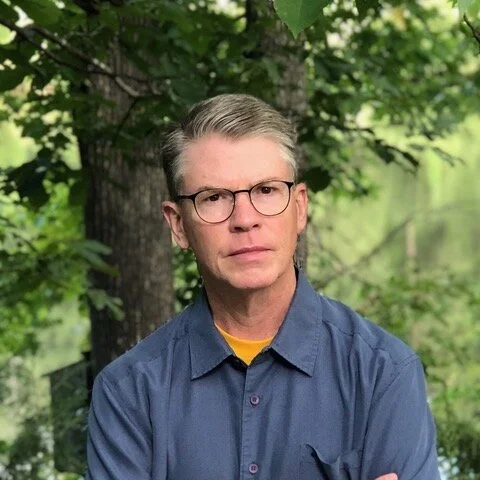DEVON MARSH ON “IN THE REDWOODS”
When our children were growing up, my wife and I made it a point to take our family to places of remarkable natural beauty. We wanted to instill in the kids a sense of wonder. Starting when they were small, we visited sites close to home in the Appalachian Mountains and on the North Carolina coast. As they grew, we ventured farther afield: desert trails in Redrock Canyon; tidal pools at Point Lobos; complex surface geology in Acadia; an immense deposit of driftwood on a stretch of beach in the Olympic Peninsula. Our family has been fortunate to see some beautiful places. In each one, we tried to slow down and take in the unique features it had to offer.
My poem, “In the Redwoods,” recounts a visit with my teenage children to California’s Big Basin State Park. The park burned in August, 2020. Although many of the largest trees survived the fire, reading the poem now inflicts a poignancy I couldn’t have anticipated when I wrote it. I wrote the poem because our walk along the trails in Big Basin felt different from other hikes. Surrounded by the ancient redwood trees, I found myself wondering how many tourists these patient giants had observed. Trees feel our presence, if not in a sentient way then at least through our effect on their surroundings. But it’s possible they register more than we think they do. Trees communicate through sophisticated chemical mechanisms, using both airborne and mycorrhizal connections. We might discover that their capacity for cognition approaches their ability at communication. What did the redwoods perceive about me and my family? What did they tell each other after we left?
In a poem published last summer, I wrote, “Through us, the universe reflects.” I believe humans are the universe’s attempt to reflect on itself. Similarly, human creations—works of art, legends, myths—are Homo sapiens’ attempt to reflect on ourselves. None of the mythical creatures in our imaginations lurk in shadows observing us, but our knowledge of them asserts their presence as a possibility. We’ve each felt hair stand up on the back of the neck. The sense that someone is watching us is hard to shake. It might arise from a primitive awareness that in fact someone is watching us. Or it might arise from the natural world itself regarding us with a critical eye; it has every justification to observe us with suspicion. Or it might arise from our own creations observing us from inside our minds and forming their own opinions.
As I suggest in “In the Redwoods,” a Sasquatch family watching us walk through the forest would wonder how humans have managed to achieve all we have. They would puzzle over how we as a species have exercised dominion to the point of ruin, putting them and ourselves in peril, when by all appearances we are ill-equipped for survival. The sense that I was watched in this way stayed with me in the redwoods. The perception felt like a gift, and our hike that day felt like a poem.
